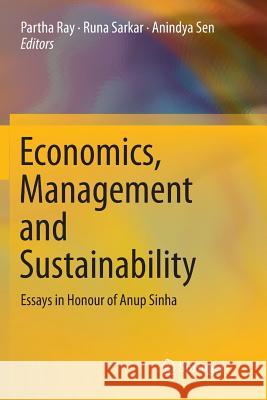Economics, Management and Sustainability: Essays in Honour of Anup Sinha » książka
topmenu
Economics, Management and Sustainability: Essays in Honour of Anup Sinha
ISBN-13: 9789811347009 / Angielski / Miękka / 2018 / 283 str.
Kategorie:
Kategorie BISAC:
Wydawca:
Springer
Język:
Angielski
ISBN-13:
9789811347009
Rok wydania:
2018
Dostępne języki:
Ilość stron:
283
Waga:
0.42 kg
Wymiary:
23.39 x 15.6 x 1.63
Oprawa:
Miękka
Dodatkowe informacje:
Wydanie ilustrowane











